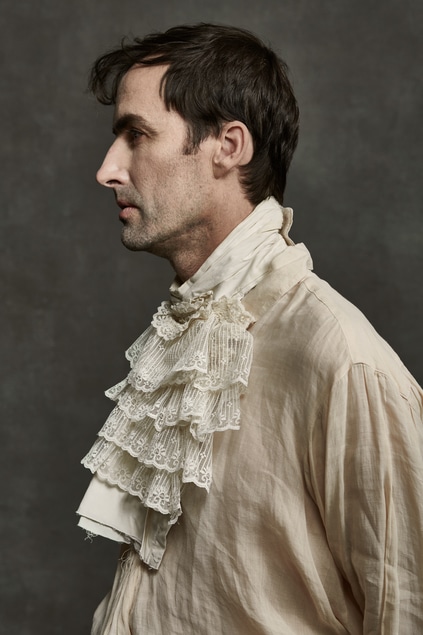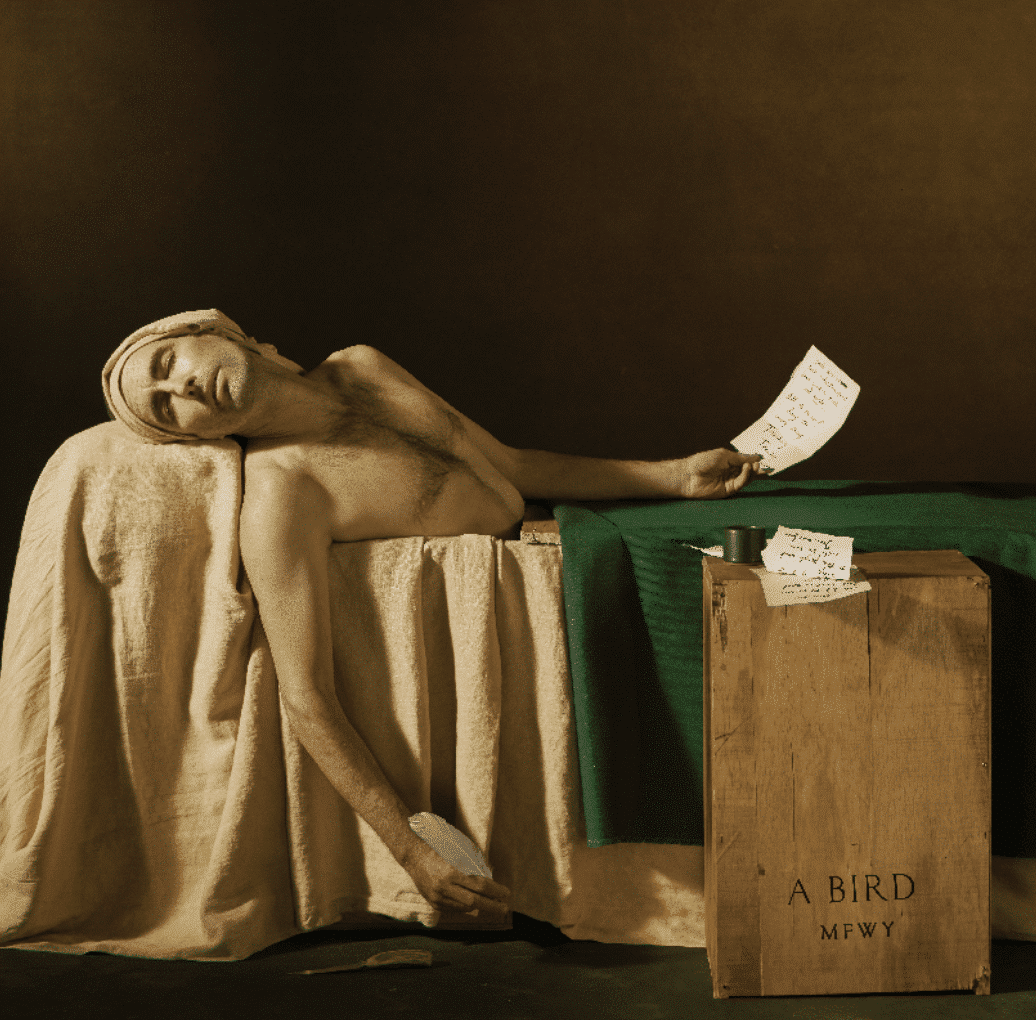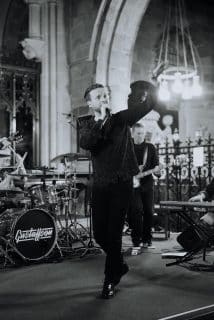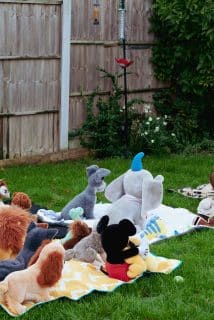Andrew Bird: “We’re all being played, for profit.”
Culture
Andrew Bird is a musician who has just released the most searing American album of the year - we talked to him about music and defiance in a troubling time.
Andrew Bird‘s new album ‘My Finest Work Yet’ may be wryly titled, but it is certainly a record which feels like a new high watermark for the cult singer-songwriter. Cometh the hour, cometh the man, and while we may decry the state the world finds itself in under the new demagogues spreading hate and division, we are getting at least some people stepping up to deliver powerful missives tied to arrows and fired into the thick hides of the beasts. Bird has released 13 albums in a career stretching back to 1997, and is the type of authentic, principled underground talent which America nurtures so well in dive bars and cluttered studios and art scenes in the big cities, and who now has a break-out call to arms to the sensible people of his country. He has previously introduced the single ‘Bloodless’ from ‘My Finest Work Yet’ with: ‘We find ourselves in a cold civil war. Everyone is playing their part too well. Certain actors are reaping power and wealth from divisiveness. Echoes of the Spanish civil war when fascists and clergy win because they put up a united front against the individualistic and principled (yet scattered) left. We can turn this ship around but need to step back and be honest with ourselves about what’s happening while it’s still relatively bloodless.’
Here we grabbed a quick conversation with Andrew while he tours the album.
You recorded the album live – why? And is that easy?
Th trend of the last 30, 40 years of recording is to isolate every instrument. Especially the drums because they’re usually the loudest. You put them in a vacuum so you can record them and treat them and mix them – it’s all about post performance. I’ve been trying to crack this code for a long time, how to bridge the gap between live performance and the studio. It’s not as simple of, “Oh we’ll just record a band paying live in a room,” it’s not that easy. The problem is there’s bleed between instruments and it creates complexities of how to control it. But we took more of an approach of how can we make the bleed beautiful. Of course the drums are going to be in every microphone, but how can we make the way it appears in every microphone cool. When we first got ‘Bloodless’ done and heard that back it was like, wow that sounds better than I’d hoped.
As an artist do you need people around you to say go for it on these things?
Yeah totally, I’ve had problems through the years with people who aren’t willing to risk that. Especially, say when you’re self conscious about your voice you can say, oh I’ll play it safe and fix that later. The real tricky thing for me was singing above the band. Getting everyone to play quiet enough. Eventually we put my voice through an amp and found the reverb helped give me the leg up.

Is this organic approach a reaction to other things going on in music at the moment or just a way to entertain yourself?
When I hear modern records I hear decisions being made. I hear production decisions being made. I feel like it’s on a grid, most of it. I like a song that creeps up on me a little, that leans one way or the other, or almost crashes and burns. It makes it feel like a more valuable thing when it goes to tape.
Is it all a reaction to digital age?
I suppose so, yeah. I just know what works for me. It’s not a nostalgic thing. I’ve axed so many records in the past, mixed records, because I went down the wrong path. You don’t know it’s going to work every time but it’s formed into my ethos of working. Besides, now when I do stuff it’s expensive and everyone’s on full salaries, so I can’t afford to scrap records anymore!
This album is very bold thematically and musically – have you got more riskier as you’ve gotten older? Do you have more belief that you can go to different places?
I think so, for sure. I’ve never had the benefit of never having outrageous success that would cause me to clamp down and say, oh that worked, stick to that. That’s the upside of never being a major hit maker! But I think you’re onto something there. I’ve been at this since I was 19, and I took risks back then too, but over the years you become a little more aware of an audience and you start thinking, ‘oh this’ll get em!’ or ‘this will throw them for a leap!’. But I think I generally just follow my own curiosities, and what I really don’t understand is when people see an acoustic guitar and think, that’s not my thing. For all my interest in tones and textures, I realise it doesn’t matter how you make a musical sound. People can just tell whether you are being true.
How was your approach to lyric writing for this one? Do you have a certain approach you always use?
I am a constantly writing sort of person. I work with a mixture of instrumental experimentation and melodic experimentation, and when I get into a lyric writing mode I’m mostly working with the melody throughout the day, while doing mundane things. The melody is running through my head and I’m running sounds and syllables and ideas over the top of the melody. It’s a very fluid process at first where nothing is taking clear shape, but I’ve opened up the spigot to let that vocabulary flow over the melody. I really enjoy that stage of things when melodies and words are not faithful yet to anything, and they go out and hang out with another melody for a while. That song will often get split off into other things because it can’t bear the weight. It goes off and attaches to another one. That’s why albums often make sense from song to song, because at one point it might have been the same song. Over time I keep whittling them down and working my way towards meaning.
Sometimes it’s a melody driving it or a rhythmic thing or a word I was fixated on. Like the song ‘Sisyphus’ really started with the word precipice. I kept thinking about being on the brink of a massive change, and observing that when my young son walks into a new room he sort of hangs on the precipice of that room. Or getting out of a car he’ll hang out right on the edge. And when he goes into a new space he’ll make a little sound, as if to find out about the big space and where he is in it. It’s funny thing to observe, he does it unconsciously.
Anyway precipice is an interesting word, there’s not many words that rhyme with precipice, which led me to Sisyphus. Which sounds a bit arbitrary but you just follow these tangents in your head until they coalesce.
And the idea of a precipice expanded within the song to look at society?
I mean that song ended up being about morality and human nature and connectedness. And to a larger thing beyond yourself, the responsibility you have to that – or whether it’s to yourself, or freedom. No clear answers are arrived at but it’s a good way to start the record I think.
We’re living in an individualistic world at the moment, quite a dark one, but people tend to look to music for answers and connection at such times – do you feel that responsibilty?
At first I bristled at the idea of a duty or responsibility because that sounds like a bummer for an artist – the idea that you’re supposed to do something. But then it became inescapable. I don’t know how people can write a song about partying right now.
If you’re alive right now and paying attention, that should come out in your art, but when it’s a little too forced or driven it won’t work, it’ll hit the floor like a wet sponge. There were things I was trying that didn’t work. For instance ‘Fallorun’ was the last song I wrote and I was trying five or six different things for the chorus and they were all heavy handed and pretentious and I knew it, right, that’s why I had six different things. I kept singing about the fall of Rome, and my wife thought I was singing follow or ruin and it kind of ran up together as one word. It was a little abstract but I think it makes sense. This fight or flight kind of thing. With ‘Bloodless’ and ‘Fallorun’ it you should be able to tell what I’m talking about at first listen. There’s a balance of abstract stuff and reality.
A lot of people get paralysed and can’t communicate because the problems seem so daunting – can music break through that?
Yeah and I’m still optimistic that a lot of folks lost to us or who don’t understand us, still can have a conversation about it. I think there are vast swathes of the population that have lost the map, but there’s a chance of getting beyond preaching to the choir. If you talk about it in a certain way that’s not dehumanising everybody then it’s different. That’s what I think is happening here – we’re all being played, for profit. And if we can recognise it, well, you’ve got to be hopeful right?
Masculinity is much under discussion at the moment – what’s your take on it, is anything changing?
I grew up being horrified by my own gender and behaviour. The locker room talk and the amazingly rapey things that were said and done in high school around me. I wanted nothing to do with that and I was ashamed of my own gender. So I think what’s happening now is a long time coming, a reckoning. But it’s a really complicated deep thing. For instance, I was seeing someone that was in Switzerland, a very outwardly progressive modern society in some ways, and she’d complain about the men being kind of neutered in this progressive society. She was like, “They just won’t be a man, y’know?” That made me see the other side of it.
It seems dangerous to destroy it altogether.
Yes, with over zealous compensation. I think masculinity is at sea right now. I don’t know why. I mean it shouldn’t be so complicated about what’s right and what’s wrong here.
You’re in a pressurised industry where you’re judged on your heartfelt work, how do you mentally look after yourself?
Yeah there was a time in 2008, 2009 where I was broken from it. I worked so many years to get to a point, with 10, 12 years in a band, playing shady rock clubs all over the world, and finally people started coming. You can’t say no to anything when you’ve worked that hard to get there. So I was doing 200 shows a year and I was sick constantly and broke my health. Now I feel like I’ve got something figured out, but there’s new dynamic. You used to be told, ‘stop making records so much because you’re over taxing everyone’s attention’, that was only a few years ago. Now it’s: ‘We need more, we need constant content, we need more of you out there.’ So my tactic to deal with that is that whatever I do on social media has to be interesting to me and fun and musical and educational, and then I’m cool with it. As soon as it starts feeling like a chore, I don’t do it. That’s self selective anyway: as soon as you do something that’s a chore it doesn’t work in that realm.
I have to admit the demand for content has actually brought me closer with other musicians. The necessity has caused me to forge new relationships with other musicians that I’m glad for. It’s not all drudgery, it’s not all feeding the beast.
Trending

Join The Book of Man
Sign up to our daily newsletters to join the frontline of the revolution in masculinity.

















